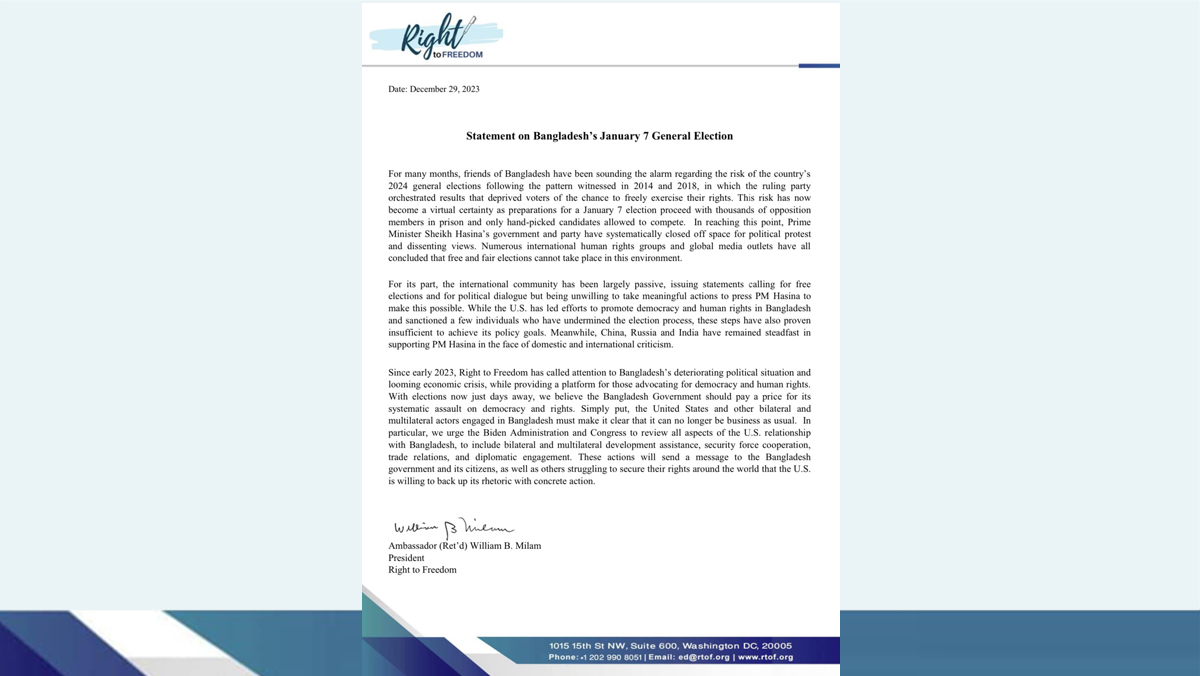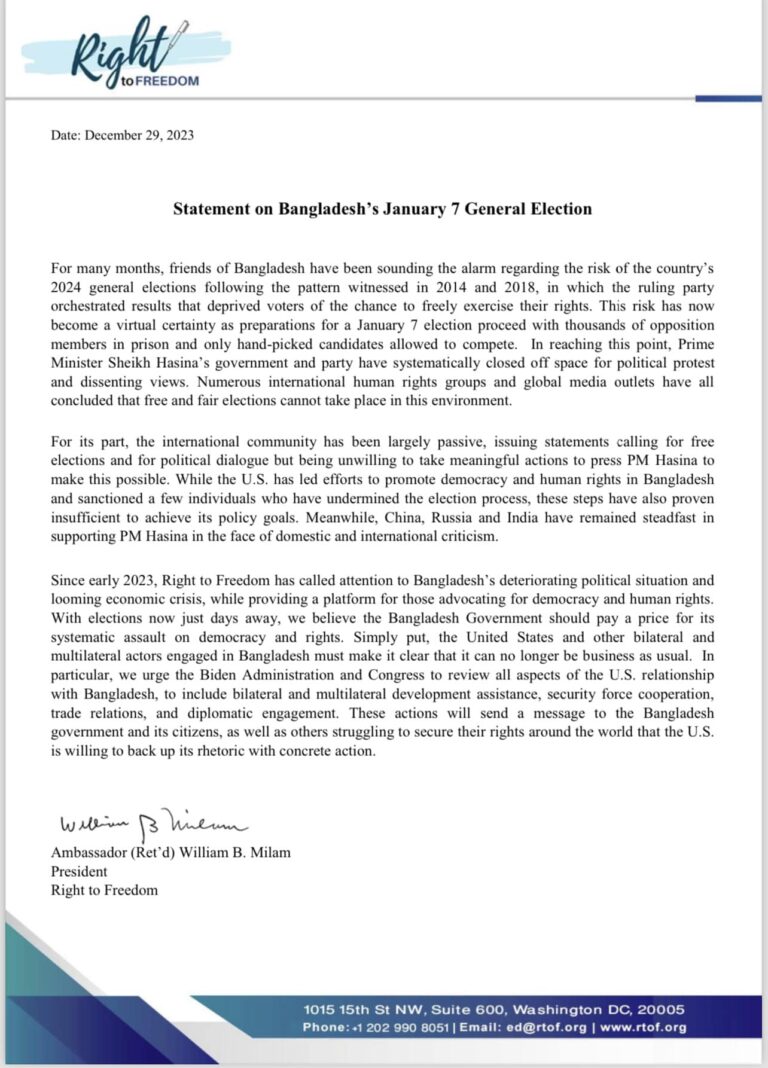
Date: December 29, 2023
For many months, friends of Bangladesh have been sounding the alarm regarding the risk of the country’s 2024 general elections following the pattern witnessed in 2014 and 2018, in which the ruling party orchestrated results that deprived voters of the chance to freely exercise their rights. This risk has now become a virtual certainty as preparations for a January 7 election proceed with thousands of opposition members in prison and only hand-picked candidates allowed to compete. In reaching this point, Prime Minister Sheikh Hasina’s government and party have systematically closed off space for political protest and dissenting views. Numerous international human rights groups and global media outlets have all concluded that free and fair elections cannot take place in this environment.
For its part, the international community has been largely passive, issuing statements calling for free elections and for political dialogue but being unwilling to take meaningful actions to press PM Hasina to make this possible. While the U.S. has led efforts to promote democracy and human rights in Bangladesh and sanctioned a few individuals who have undermined the election process, these steps have also proven insufficient to achieve its policy goals. Meanwhile, China, Russia and India have remained steadfast in supporting PM Hasina in the face of domestic and international criticism.
Since early 2023, Right to Freedom has called attention to Bangladesh’s deteriorating political situation and looming economic crisis, while providing a platform for those advocating for democracy and human rights. With elections now just days away, we believe the Bangladesh Government should pay a price for its systematic assault on democracy and rights. Simply put, the United States and other bilateral and multilateral actors engaged in Bangladesh must make it clear that it can no longer be business as usual. In particular, we urge the Biden Administration and Congress to review all aspects of the U.S. relationship with Bangladesh, to include bilateral and multilateral development assistance, security force cooperation, trade relations, and diplomatic engagement. These actions will send a message to the Bangladesh government and its citizens, as well as others struggling to secure their rights around the world that the U.S. is willing to back up its rhetoric with concrete action.
Ambassador (Ret’d) William B. Milam
President
Right to Freedom

Don’t miss our future updates! Get Subscribed Today!
Building conversation on human rights situation in policy circles about countries facing transitional crises in order to safeguard the basic rights, uphold the democratic values, norms and practices.Be one of the leading US based, non government organizations in building participatory.
Copyright © 2024 R2F, All Rights Reserved.